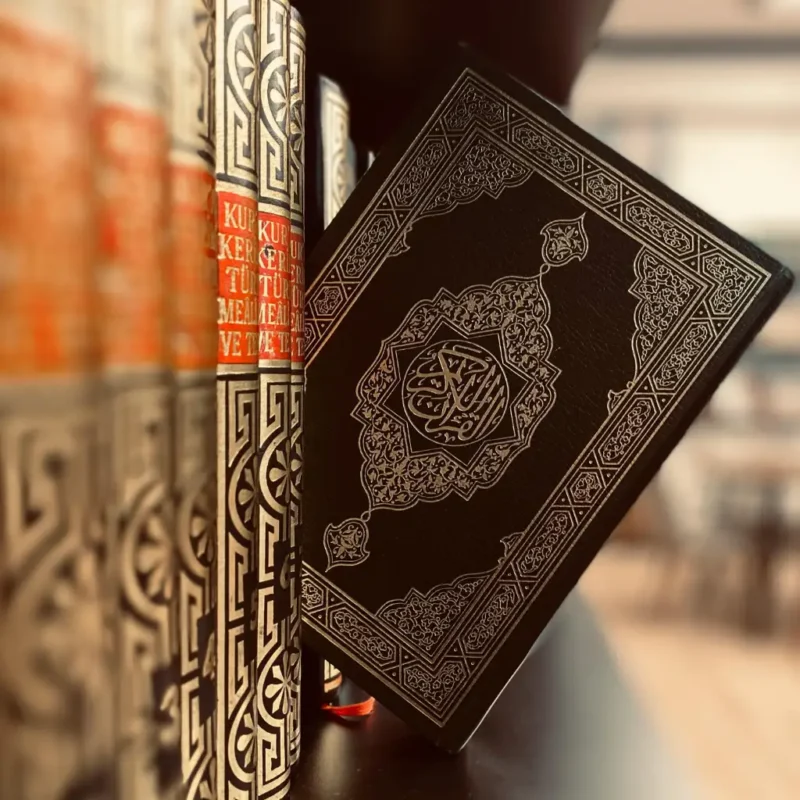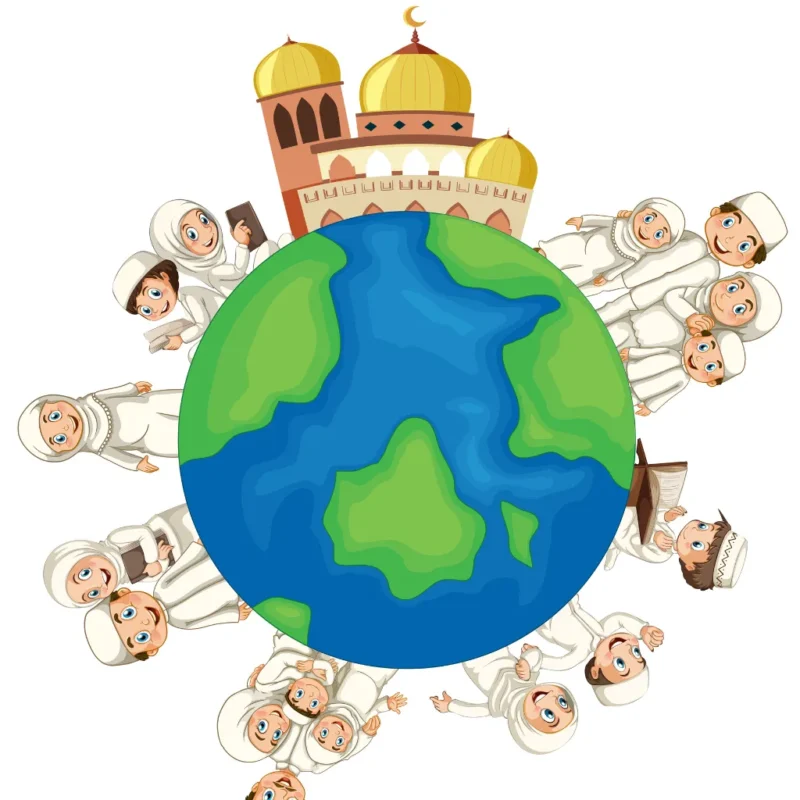Introduction
Religion has always guided human values, societies, and cultures. Among the world’s major faiths, Islam is the religion that emphasizes peace, truth, and submission to the will of the One God. With more than 1.9 billion followers worldwide, it is the second-largest faith and one of the fastest-growing religions. People often search for questions like why Islam is the religion of peace or how Islam is the religion of truth. These questions reflect curiosity about Islam’s role in shaping human thought and its global influence.
Understanding Islam requires exploring its foundations, principles, and how it guides believers in every part of life. This article provides a closer examination of why Islam is often referred to as the religion of peace, logic, and truth, while also addressing common comparisons and misconceptions.
Why Islam is the Religion of Peace
The very name “Islam” comes from the Arabic word Salaam, meaning peace and safety. Followers believe that Islam is not only a set of rituals but a way of living peacefully with God, oneself, and others.
The Quran, Islam’s holy book, repeatedly emphasizes harmony and compassion. One of its verses states: “Whoever kills an innocent soul, it is as if he has killed all of mankind. And whoever saves one life, it is as if he has saved all of mankind.” (Quran 5:32). This teaching makes it clear that the sanctity of life is central in Islam.
When people ask why Islam is a religion of peace, the answer lies in its moral foundation. From encouraging kindness to neighbors, honesty in trade, to charity for the poor, every command aims to promote peace and justice. You can also check what the difference is between Islam and Muslims.
How Islam is the Religion of Truth
Another popular question is whether Islam is a religion of truth. The foundation of Islam is belief in one God, Allah, who is merciful and just. The message of Islam is preserved in the Quran, revealed more than 1,400 years ago, and is still unchanged. Muslims see this preservation as evidence of truth.
Islam also presents logical answers to fundamental questions of life: Who created us? Why are we here? What happens after death? It explains the purpose of life as worship and service to God while building a just society. For this reason, many people view Islam is the religion of truth that provides both spiritual clarity and rational understanding.
Islam is the Religion with Logic
Faith and reason are often seen as separate, but Islam is a religion with logic. The Quran invites people to think, reflect, and use their intellect. Verses challenge readers to observe the universe, the creation of the heavens and the earth, and the cycle of life and death as signs of God.
For example, scientific references in the Quran, such as the stages of human embryo development or the expansion of the universe, are often highlighted as examples of how religion connects with science. Rather than discouraging inquiry, Islam encourages questioning as a path to stronger belief.
Islam is a Religion without Compulsion
One of the most powerful statements in the Quran says: “There is no compulsion in religion. Truth stands clear from error.” (Quran 2:256). This shows that Islam is a religion without compulsion.
Contrary to misconceptions, belief in Islam must come from free will. Forced faith is not accepted. Historically, Muslim societies included people of different religions who practiced freely under agreements of protection. This principle highlights that Islam respects human freedom and dignity.
Islam is a Religion for Humanity
Some assume Islam is limited to Arabs or specific regions, but the Quran describes Prophet Muhammad (peace be upon him) as “a mercy to the worlds.” (Quran 21:107). This makes Islam a religion for humanity, not just for one nation or race.
Its universal message includes equality of all humans, regardless of race, wealth, or status. The Prophet’s final sermon declared that no Arab is superior to a non-Arab, and no white is superior to a black, except by righteousness. These values resonate strongly in modern times, where equality and justice are global concerns.
Islam is a Religion vs Christianity and Hinduism
Searches like Islam is religion vs Christianity or Islam is religion vs Hinduism reflect interest in comparisons.
- Islam vs Christianity: Both emphasize belief in God and morality, but Christianity centers on the Trinity and Jesus as the Son of God, while Islam stresses absolute monotheism and considers Jesus a prophet.
- Islam vs Hinduism: Hinduism has multiple deities and complex traditions, while Islam insists on one God, with clear rituals such as daily prayers, fasting, and charity.
These comparisons show that while Islam shares values like compassion and justice with other religions, it defines itself through strict monotheism and the concept of direct accountability to God. You can also check Do Muslims Believe in Jesus? Islam’s View Explained in this article.
Islam is Religion and Politics
Another frequently discussed topic is that Islam is a religion and politics. In Islam, religion does not exist separately from daily life. Instead, it provides moral guidance for governance, justice, and social systems.
This does not mean Islam enforces a single political system. Rather, it lays down principles: fairness in leadership, accountability, consultation (shura), and protecting the rights of the weak. Many Muslim scholars emphasize that true Islamic politics must reflect justice and morality, not power or oppression.
Islam is a Religion and Peaceful Coexistence
Despite stereotypes, Islam teaches respect for other faiths and communities. The Prophet Muhammad (peace be upon him) signed treaties with Jews and Christians, ensuring freedom of worship and protection.
This supports the idea that Islam is a religion and peace, where coexistence is encouraged. The Quran instructs Muslims to argue with people of other religions in a way that is kind and respectful (Quran 16:125). Such examples show that peace is not just an internal value but also applies to interfaith relations.
Islam is a Religion Quotes and Wisdom
People often search for Islamic religious quotes to find inspiration. Here are a few meaningful sayings:
- “The best among you are those who have the best manners and character.” — Prophet Muhammad (peace be upon him)
- “God does not look at your appearance or wealth but at your heart and deeds.”
- “Do not oppress others, for oppression will be darkness on the Day of Judgment.”
These quotes highlight that Islam is a religion that builds both moral character and social justice.
Islam is the Religion of Truth and Future Growth
Today, Islam is one of the fastest-growing religions in the world. Studies show this growth is not only due to birth rates but also because people convert after studying its teachings. Many converts say they find Islam logical, spiritually fulfilling, and practical.
This reflects the belief that Islam is the religion of truth, offering timeless answers for modern challenges. Its emphasis on justice, family, community, and spirituality continues to attract people globally.
FAQs
How Islam is the religion of truth?
Islam is viewed as a religion of truth because its teachings are preserved in the Quran, which has remained unchanged for over 1,400 years. It provides logical answers about human existence, purpose, and life after death. Many find its consistency and clarity proof of truth.
Is Islam religion with logic?
Yes. Islam encourages reflection and reasoning. The Quran often calls people to think about the universe, life, and nature. Its guidance connects faith with intellect, making Islam a religion with logic as well as belief.
Is Islam religion for humanity or only for a group?
Islam is a universal message meant for all humanity. Its teachings apply equally to men and women, rich and poor, Arabs and non-Arabs. The Prophet Muhammad (peace be upon him) was described as “a mercy to the worlds,” showing Islam is a religion for everyone.
Why people say Islam is religion of truth and peace?
Because Islam provides clear moral guidance, protects human dignity, and promotes harmony. Its teachings combine logic, spirituality, and justice, making it a religion of truth and peace.
Conclusion
From peace and compassion to justice and truth, Islam is the religion that offers guidance for every aspect of human life. It connects faith with logic, values freedom of choice, and speaks to all humanity, not just one group. While comparisons with Christianity, Hinduism, or politics often spark debate, the essence remains clear: Islam is a religion of peace, mercy, and truth.
In a world struggling with conflict and inequality, the principles of Islam, equality, justice, kindness, and compassion, remain more relevant than ever.





